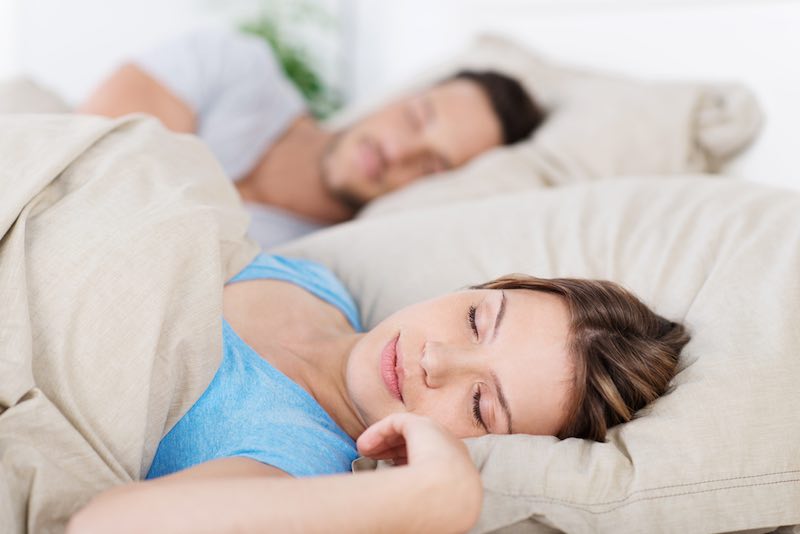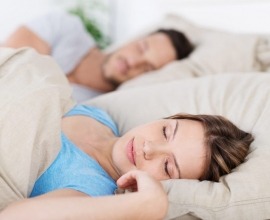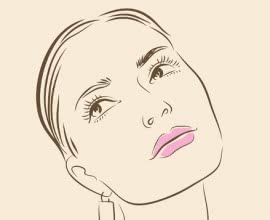Kick the Post-surgery Insomnia
Individuals whom have undergone cosmetic surgery might experience a temporary deviation out of their normal sleep cycle. In fact, anesthesia-induced insomnia is not so uncommon that you would ever feel completely hopeless trying to catch some shut eye. The positives here are that it lasts only a few weeks, so check out these handful of tips and maybe grab an over-the-counter sleep aid to get the rest you need.
Why plastic surgery disrupts your sleep cycle
Our normal sleep cycle repeats every 24 hours and includes 5 stages, with four slow-wave sleep (SWS) phases and the commonly-known rapid eye movement (REM) phase. Since anesthesia induces a similar sleep to what we experience during the SWS phases, regardless of your immediate surroundings and natural rhythm, going into a surgery under general anesthesia will leave you feeling something similar to jet lag because its effect on the hypothalamus.[1]
Other causes of post-surgery insomnia may include morphine and steroids. While a reliable source for pain relief and useful for inducing sleep when you are struggling with that pain, morphine-based medications are notorious for causing the jitters and shorten the overall length of both SWS and REM sleep phases that humans experience through the night.[2] Steroids are known to decrease inflammation and also cause sleep difficulties, which is why your doctor may recommend this sort of medication ought to be taken in the morning.[3]
Get your sleep habits back on track
The best way to tackle insomnia is to make yourself a schedule.
-
Take prescribed medications on time, and sleeping aids 30 minutes before retiring for the night
-
Avoid over-napping and hold off as much as possible so that you can have a full night of sleep
-
Experiment with proactive ways to manage emotional stress and stick to one that ultimately suits you
-
Invest in the right support such as a pillow to avoid muscle strain around the surgical area
-
Skip any urge you may have to indulge in caffeinated drinks and snacks, especially 6 hours prior to bedtime [4]
Other pieces of advice you can take to prepare yourself mentally for longer sleep through the night is to adjust the light level and color temperature of your phone and laptop an hour before sleep. Sometimes you can dim the brightness manually, set up reading mode, or download an app like HALO or f.lux that will automatically adjust settings depending on the time of day.
An additional sleep aid you might want to consider is melatonin, but first discuss this with the doctor who prescribed your post-op medications in case he or she would recommend an alternative.

Sleep and immunity
Your quality of sleep and immunity are undeniably linked. This means that any amount of sleep deprivation may increase your susceptibility to infection, which is even more of a concern for those whom have delt with preoperative sleep disturbances. Conditions like obstructive sleep apnea (OSA), attention-deficit hyperactive disorder (ADHD) and polycystic ovary syndrome (PCOS), for example, often coincide with poor sleep and would place a patient at higher risk for developing feelings of aggression, irritability and confusion during the post-operative period.[5]
Generally speaking, though, creating something of a sleep ritual will undoubtably help anybody during and outside of recovery but it is especially important if you struggle with sleep on a normal basis.
For more advice on how to guide your body and mind in order to bring on an immunity boost, check out more here.
Sources:
[1] Luo, Man, et al. “Sleep Disturbances After General Anesthesia: Current Perspectives.” Frontiers in Neurology, vol. 11, 8 July 2020, doi:10.3389/fneur.2020.00629.
[2] Wheeler, Wolcott. “The Dangers of Using Opioids as Sleep Aids.” Edited by Raymond Zakhari, Single Care, SingleCare Administrators, 22 Aug. 2019, www.singlecare.com/blog/opioids-and-sleep-aids/.
[3] Whitlock, Jennifer. “What to Do If You Have Trouble Sleeping After Surgery.” Edited by Scott Sundick, Verywell Health, Dotdash, 23 Jan. 2020, www.verywellhealth.com/insomnia-and-poor-sleep-quality-after-surgery-315...
[4] Panin, Brenda. “Overcoming Insomnia and Sleep Apnea after Surgery.” Plastic Surgery Hub, Plastic Surgery Hub, 14 Oct. 2014, www.plasticsurgeryhub.com.au/overcome-sleeping-problems-surgery/.
[5] Luo, Ibid.














